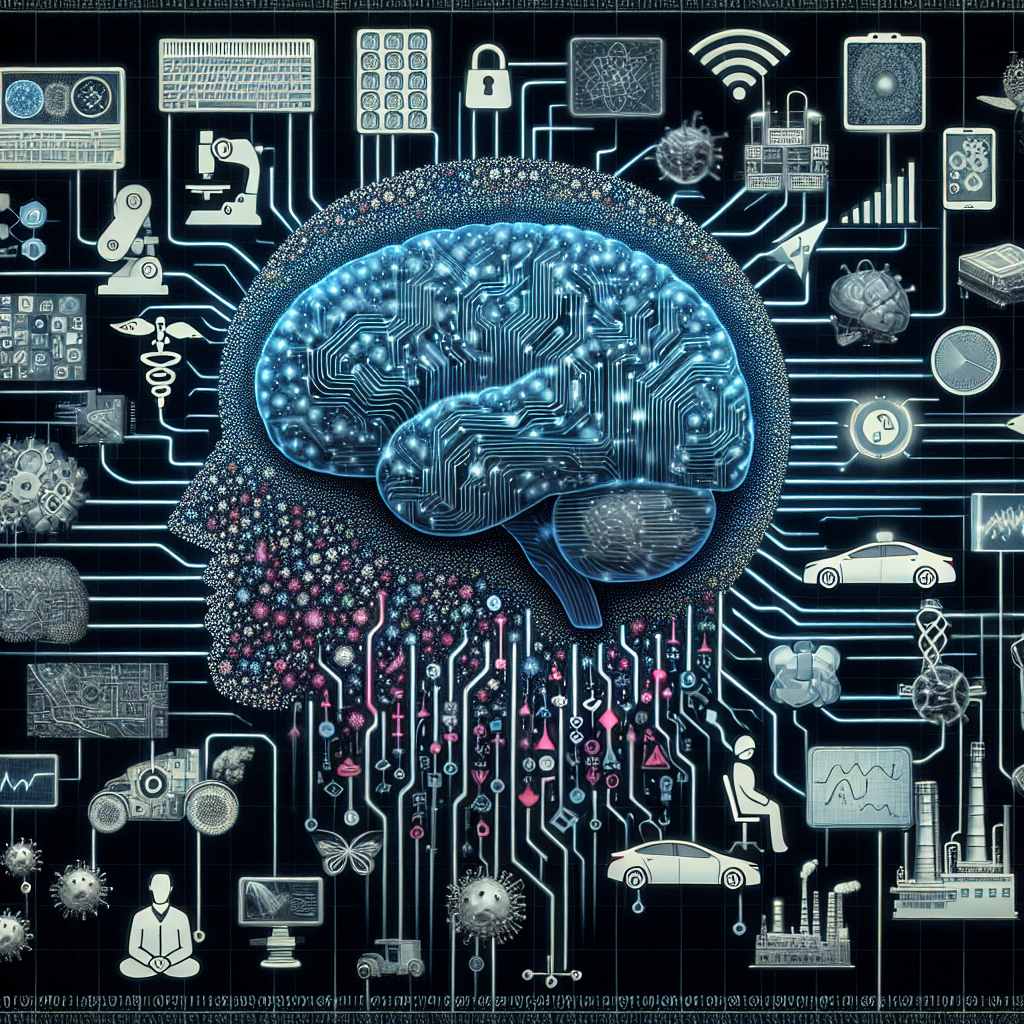Unleashing the Power of AGI: How It Will Revolutionize Industries
Artificial General Intelligence (AGI) is the next frontier in artificial intelligence research. Unlike current AI systems, which are designed for specific tasks or domains, AGI aims to create a machine that can perform any intellectual task that a human can. This level of intelligence has the potential to revolutionize industries across the board, from healthcare to finance to transportation. In this article, we will explore the potential of AGI and how it will reshape the way we work and live.
What is AGI?
AGI, also known as strong AI, is a type of artificial intelligence that is capable of understanding and learning any intellectual task that a human can do. This includes tasks like problem-solving, reasoning, and even creativity. Unlike current AI systems, which are designed for specific tasks like image recognition or natural language processing, AGI is designed to be a general-purpose intelligence that can adapt to any situation.
The goal of AGI research is to create a machine that can think and learn like a human. This requires developing algorithms and models that can simulate human-like intelligence, including the ability to learn from experience, reason about complex problems, and make decisions based on incomplete information. While we are still far from achieving true AGI, researchers are making steady progress in developing the foundational technologies needed to create a general-purpose intelligent system.
How will AGI revolutionize industries?
The potential impact of AGI on industries is immense. Imagine a world where intelligent machines can assist us in every aspect of our lives, from managing our finances to diagnosing and treating medical conditions. Here are a few ways that AGI could revolutionize industries:
1. Healthcare: AGI could revolutionize healthcare by enabling more accurate diagnoses, personalized treatment plans, and even robotic surgery. Intelligent systems could analyze vast amounts of patient data to identify patterns and trends that human doctors might miss, leading to better outcomes for patients.
2. Finance: In the finance industry, AGI could revolutionize trading by analyzing market trends and making predictions in real-time. Intelligent systems could also assist with risk management, fraud detection, and compliance monitoring, leading to more efficient and secure financial markets.
3. Transportation: AGI could revolutionize transportation by enabling autonomous vehicles that can navigate complex environments safely and efficiently. Intelligent systems could also optimize traffic flow, reduce congestion, and improve the overall efficiency of transportation networks.
4. Manufacturing: In the manufacturing industry, AGI could revolutionize production processes by optimizing supply chains, predicting equipment failures, and even designing new products. Intelligent systems could also enable more flexible and adaptive manufacturing systems that can respond to changing market demands.
5. Education: AGI could revolutionize education by personalizing learning experiences for students, identifying areas where they need extra help, and providing customized feedback. Intelligent tutoring systems could help students learn at their own pace and in their own style, leading to better outcomes for learners.
These are just a few examples of how AGI could revolutionize industries. The potential applications of AGI are endless, and the impact on society could be profound.
FAQs about AGI
Q: When will AGI be achieved?
A: It is difficult to predict when AGI will be achieved, as it is a complex and challenging research problem. Some researchers believe that we could achieve AGI within the next few decades, while others believe it may take much longer. Regardless of the timeline, progress in AGI research is accelerating, and we are closer than ever to creating a general-purpose intelligent system.
Q: What are the ethical implications of AGI?
A: As with any powerful technology, AGI raises important ethical questions. Issues like privacy, bias, and accountability will need to be addressed as AGI is deployed in various industries. Researchers and policymakers are already thinking about how to ensure that AGI is developed and used responsibly.
Q: Will AGI replace human workers?
A: While AGI has the potential to automate many tasks currently performed by humans, it is unlikely to replace humans entirely. Instead, AGI is more likely to augment human workers by assisting them in their tasks and enabling them to focus on more creative and strategic work. The key is to find ways to integrate AGI into existing workflows in a way that benefits both machines and humans.
Q: How can I prepare for the age of AGI?
A: As AGI becomes more prevalent in industries, it will be important for workers to develop new skills and adapt to the changing landscape of work. This may involve learning how to work alongside intelligent machines, developing skills in areas like data analysis and problem-solving, and staying up-to-date on the latest advancements in technology.
In conclusion, AGI has the potential to revolutionize industries in ways we can only begin to imagine. From healthcare to finance to transportation, intelligent machines have the potential to transform the way we work and live. While there are still many challenges to overcome, the future of AGI is bright, and the possibilities are endless. As we continue to push the boundaries of AI research, we will unlock the full potential of AGI and unleash a new era of innovation and progress.

